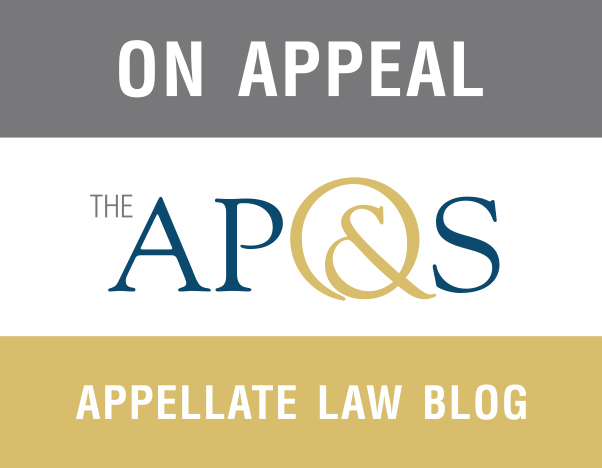A. Automobile Accidents
1. Public-Safety Officer’s Rule
Ellinwood v. Cohen, 87 A.3d 1054 (R.I. 2014): In Ellinwood, an automobile negligence case, the Rhode Island Supreme Court addressed the application of the public-safety officer’s rule. The public-safety officer’s rule – also known as the firefighter’s rule or the fireman’s rule – “bars an injured public-safety official from maintaining a negligence action against a tortfeasor whose alleged malfeasance is responsible for bringing the officer to the scene of a fire, crime, or other emergency where the officer is injured.” (citing Higgins v. Rhode Island Hospital, 35 A.3d 919, 922-23 (R.I. 2012)). For an alleged tortfeasor to successfully advance this rule, he or she must establish the following three elements:
(1) that the tortfeasor injured the police officer . . . in the course of [the officer’s] employment,
(2) that the risk the tortfeasor created was the type of risk that one could reasonably anticipate would arise in the dangerous situation which [the police officer’s] employment requires [him or her] to encounter, and
(3) that the tortfeasor is the individual who created the dangerous situation which brought the police officer . . . to the . . . accident scene . . . .” Id.
2. Motorist Who Crosses Into Oncoming Lane of Traffic
O’Connell v. Walmsley, 93 A.3d 60 (R.I. 2014): O’Connell, a wrongful death action, concerned a tragic automobile accident that claimed the lives of two young men, one of whom was the plaintiff co-administrators’ decedent. The evidence before the Court was that the decedent was a passenger in a vehicle that while traveling at a high rate of speed, crossed over the center line and into the opposite lane of traffic where it collided with a vehicle driven by the defendant. The evidence was that the defendant was driving in excess of the speed limit, was under the influence of alcohol and did not see the vehicle in which the decedent was a passenger before the collision. Notwithstanding this evidence, after a jury verdict in favor of the plaintiff, the defendant moved for judgment as a matter of law on the grounds that the plaintiff had failed to prove that, but for his negligence, the accident would not have occurred. The trial court agreed and granted judgment as a matter of law in favor of the defendant. On appeal, the Supreme Court reversed, concluding that there was sufficient evidence presented establishing intoxication, speed, and an inference of inattention or diminished reaction time on the part of the defendant from which the jury could infer negligence and conclude that the defendant’s failure to react was a contributing factor in the decedent’s death.
3. Rental Cars
Marble v. Faelle, 89 A.3d 830 (R.I. 2014): Marble concerned a motor vehicle accident involving a rental car. Under Rhode Island law, “when the operator of a motor vehicle of a rental car causes an accident, the liability of the owner of a rental car – absent some independent negligence – is predicated upon the operator having the consent of the owner.” See R.I. Gen. Laws § 31-34-4(a); see also LaFratta v. Rhode Island Public Transit Authority, 751 A.2d 1281, 1285 (R.I. 2000). By statute, “evidence that at the time of the accident or collision the motor vehicle was registered in the name of the defendant, shall be prima facie evidence that it was being operated with the consent of the defendant.” R.I. Gen. Laws § 31-33-7.
In Marble, the defendant rental car company argued that the Graves Amendment preempts Rhode Island law on these issues. Pursuant to the Graves Amendment:
“An owner of a motor vehicle that rents or leases the vehicle to a person (or an affiliate of the owner) shall not be liable under the law of any State or political subdivision thereof, by reason of being the owner of the vehicle (or an affiliate of the owner), for harm to persons or property that results or arises out of the use, operation, or possession of the vehicle during the period of rental or lease, if –
b. the owner (or an affiliate of the owner) is engaged in the trade or business of renting or leasing motor vehicles; and
c. there is no negligence or criminal wrongdoing on the part of the owner (or an affiliate of the owner).”
49 U.S.C. § 30106(a). In Marble, the Supreme Court never reached the issue of whether the Graves Amendment preempts Rhode Island law because there were issues of fact that required reversal of the trial court’s grant of summary judgment but it provides an opportunity for rental car companies to argue the issue of preemption in future cases.
B. Independent Medical Records Review
See Woodruff v. Gitlow: https://www.apslaw.com/on-appeal/trial/supreme-court-holds-health-care-professional-engaged-provide-independent-medical-records-review-owes-duty-care-patient/




